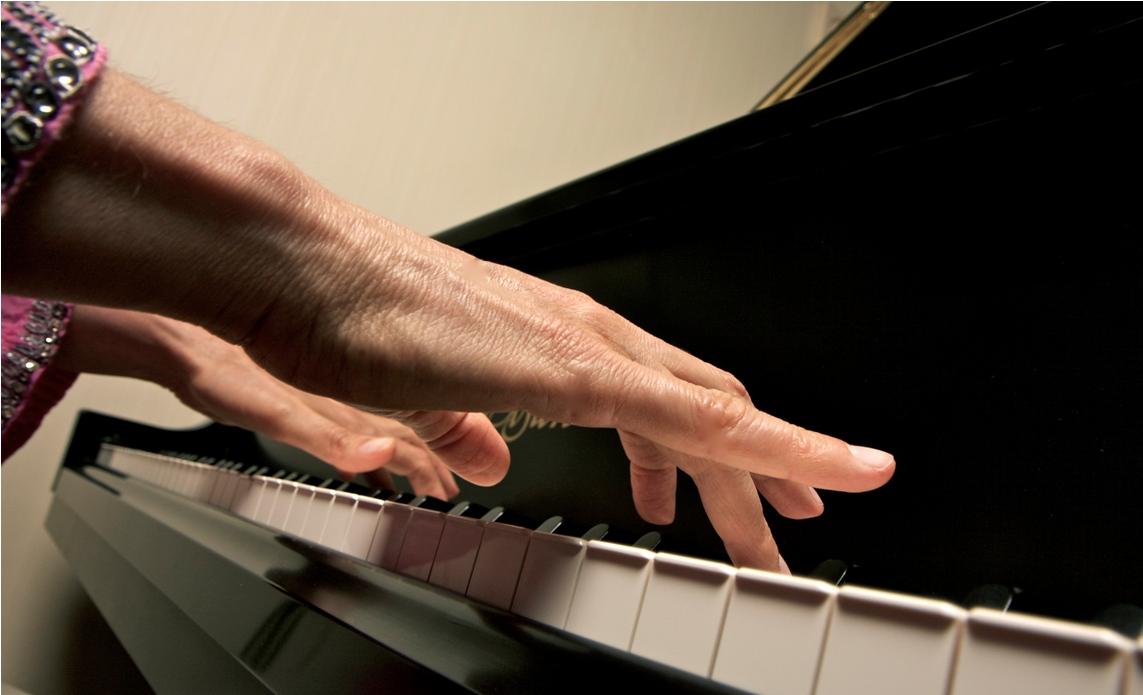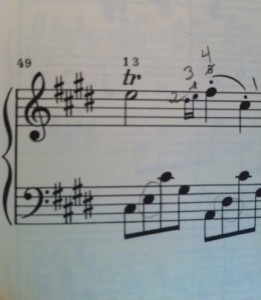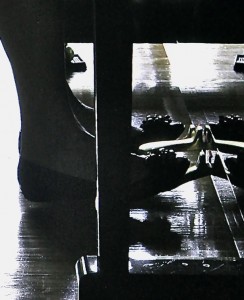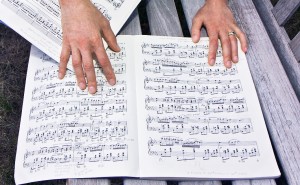Last summer, when I clicked through photographs for my website, I noticed something amiss on the shots of my hands at the piano. The pinky of my right hand, rather than cupping over the keys, jutted straight out, flexed with an unnatural tension. To me, the pinky seemed bizarre yet endearing at the same time. I soon would discover the penalties this quirk exacted on my playing.
At one of my adult piano lessons a few months later, I played the end of Chopin’s Nocturne in C-sharp Minor for Stephen, my piano teacher. He pointed to the scale that rippled up and down the keyboard. “That was not at all convincing,” he said. “I’m still hearing stickiness between the black keys.”
My struggle to play the run cleanly had been dragging on in my adult piano lessons for a while. I decided Stephen’s acute musical ear could be a drawback. If he weren’t so talented, he would pronounce the Nocturne finished, and we would link arms and skip to a fresh piece of classical piano music, both of us feeling very smug about my supposed progress.
Instead, I dribbled out the scale at a protracted pace, watching my hand intently. The muscles in between my middle and ring finger tingled. They felt weak.
Once at home, I wondered whether my right pinky, extended over the keys, somehow was related to the muscular weakness. I was not able to relax my pinky until I slowed the scale to a lethargic pace. Every time I hit the black keys, the scrim of muscle between my middle and ring fingers rippled in complaint.
I realized that originally I must have flexed my pinky out of frustration that I could not control my hand movements. “When the body is unsupported, it will create tension,” Jagadisha, my yoga teacher once said at one of my yoga classes. The pinky had masked the true work I needed to accomplish.
As it turned out, the work, once I applied myself to it, was not that daunting. Every day I tapped out the C-sharp minor scale staccato, at an ultra-slow pace, 10 times, relaxing my little finger and imagining all the while the muscles at the base of my fingers gaining dexterity. “You should notice your hand strengthening within three months,” Stephen assured me.
This lesson with the piano seemed like a metaphor for life at large. How often do we attempt to cover up our deficiencies with distractions? Yet in the end, my distracting pinky impeded my goal of finishing the Chopin Nocturne.
Recently, while learning the broken chords in Debussy’s First Arabesque that Stephen counseled should swing up the keyboard, the tendon on my left thumb throbbed. The thumb extended out to the side, fully flexed even when it had no business of being activated. Not again, I thought. Perhaps our deficiencies are revealed to us only when we are ready to see them.





0 Comments